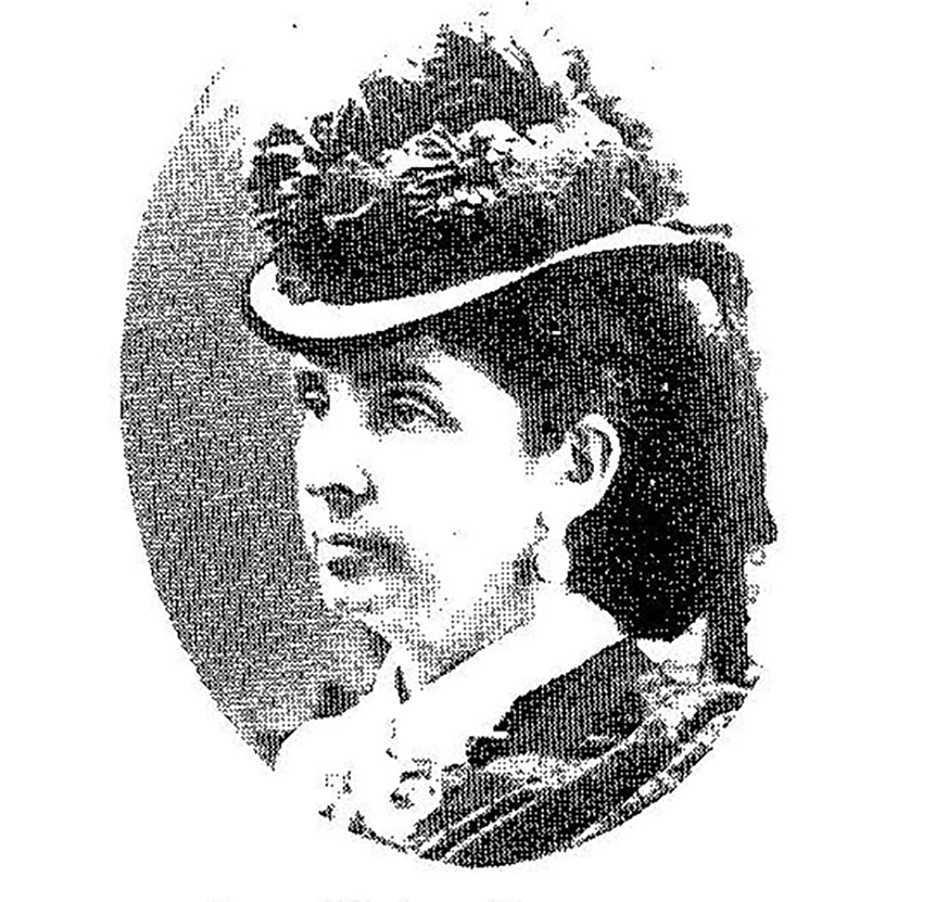Celebrating Susan Moulton McMaster

Originally published April 22, 2016
McMaster’s students, staff and faculty know the name “Moulton” well.
There’s Moulton Hall, the venerable residence. The Moulton Window is a dramatic feature of Alumni Memorial Hall. Some people may even recall that Moulton College was an important part of the University in its first few decades.
The story of Susan Moulton McMaster, however, is less well known than her name.
She was born in Connecticut in 1819, just five years after British troops burned the White House in the final year of the War of 1812. By the time she died at her daughter’s home in Montréal in 1916, Susan Moulton McMaster had exerted a significant and sustained influence on the trajectory of education for women and on the University that bears her and her husband’s name.
In 1871, Susan Moulton Fraser was a widow and mother living in New York when she met a visitor from Canada, William McMaster. Later that year, they were married, living in Toronto and about to begin a shared mission of supporting learning and Baptist values.
While William used his wealth and influence – he was the founding president of the Canadian Bank of Commerce – to support their causes, Susan turned their Bloor Street mansion into an informal centre for work on a number of progressive issues.
Susan was most passionate about the value of a Christian education, particularly for young women. She had developed this view as a student at Ipswich Seminary in Massachusetts where she greatly admired the assistant principal Mary Lyon. Lyon later founded Mount Holyoke College and served as a role model for Susan’s educational leadership.
Together, Susan and William became deeply involved with the Toronto Baptist Theological College and she encouraged her husband to seize the opportunity of moving the Canadian Literary Institute from Woodstock, Ontario to Toronto. In 1885, the McMasters invested $160,000 of their own money in building McMaster Hall as a centre for Baptist teaching and then, possibly at Susan’s suggestion, the influential couple turned their attention to founding a university.
When Senator McMaster died suddenly in 1887, his estate included a $900,000 bequest to found McMaster University, but it fell to Susan to shepherd the McMasters’ vision.
She worked not only to create the new University, but to move the Ladies’ Department of Woodstock College to Toronto and incorporate it into the new institution.
Susan succeeded in 1888 when the college relocated and became a department of the newly founded McMaster University under the name Moulton Ladies’ College. Around the same time, she transferred ownership of the McMaster family home to the University as she prepared to move back to her native New England.
Susan Moulton McMaster was deeply involved during the early years of Moulton College (as it became known beginning in 1910). She visited regularly with students, giving them advice and delivering talks in the chapel.
She was adamant that the Bible serve as the central textbook and she offered students both verbal and printed collections of life-guiding maxims such as “Never say behind anyone’s back what you would not care to say to her face” and “Never offer wine to anyone, certainly not to a young man, or to have it or use it in your home.” Reportedly much loved by students, they often referred to her as “Our Founder-Mother.”
As her long life entered its final years, Susan reflected on the power of education to help women assume strong roles both at home and in community service. She was known to say, “Education is to fit one to do good.” At the age of 96, just a year before her death, she wrote, “During the past twenty-three years young women have occupied so much of my thinking that my interests are concentrated on them now.”
On Founder’s Day, particularly in 2016 on the 100th anniversary of her death, we honour the irreplaceable role that Susan Moulton McMaster played in envisioning and creating McMaster University and in building a legacy of learning, particularly for women, that remains vibrant more than a century later.


